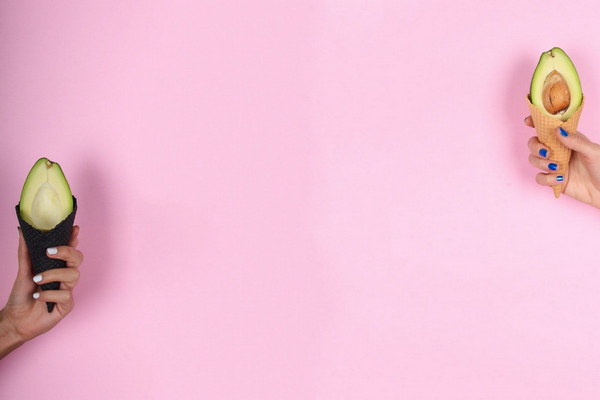Revitalize Your Health with these Moisture-Regulating Traditional Chinese Medicine Recipes
In the bustling world of health and wellness, it's easy to overlook the subtle yet significant role that moisture plays in our bodies. In Traditional Chinese Medicine (TCM), moisture, or Dampness, is considered a primary cause of imbalance and illness. To combat this, TCM offers a wide array of herbal remedies and dietary adjustments. This article will delve into the world of moisture-regulating traditional Chinese medicine recipes, offering you a guide to balancing your body's moisture levels and promoting overall health.
Understanding Dampness in TCM
According to TCM, dampness is a condition where the body's fluids become stagnated, leading to a variety of symptoms such as fatigue, weight gain, bloating, and digestive issues. The root cause of dampness is often attributed to an excess of water intake, improper diet, or environmental factors like humidity.
Moisture-regulating TCM recipes aim to nourish the body, drain dampness, and restore balance. These recipes are not only delicious but also beneficial for your health, providing the necessary nutrients to support your body's moisture-regulating systems.
Top Moisture-Regulating TCM Recipes

1. Chinese Cabbage Soup
This traditional Chinese soup is a flavorful and nourishing dish that effectively drains dampness. Made with Chinese cabbage, carrots, radishes, and pork, it helps to promote digestion and eliminate excess moisture.
Ingredients:
- 1 cup of Chinese cabbage
- 2 carrots, sliced
- 1 radish, sliced
- 1 cup of pork, diced
- 6 cups of water
- 1 tablespoon of ginger, sliced
- 1 teaspoon of rock sugar
- Salt to taste
Instructions:
1. Bring the water to a boil in a large pot.
2. Add ginger and rock sugar, then reduce the heat.
3. Add pork, carrots, and radish, and cook until tender.
4. Add Chinese cabbage and cook until wilted.
5. Season with salt to taste.
2. Bitter Melon and Pork Soup
Bitter melon is a powerful herb that helps to drain dampness and regulate blood sugar levels. When combined with pork, it becomes a delicious and nourishing soup that supports your body's moisture balance.
Ingredients:
- 1 bitter melon, sliced
- 1 cup of pork, diced
- 6 cups of water
- 1 tablespoon of ginger, sliced
- 1 teaspoon of salt
- 2 tablespoons of soy sauce
- 1 tablespoon of sesame oil
Instructions:
1. Bring the water to a boil in a large pot.
2. Add ginger and bring to a simmer.
3. Add pork and cook until tender.
4. Add bitter melon and cook until soft.
5. Season with salt, soy sauce, and sesame oil.
3. Rice Noodles with Dandelion
Dandelion is a well-known herb in TCM for its ability to drain dampness and boost liver function. When paired with rice noodles, this dish becomes a light yet satisfying meal that supports your body's moisture balance.
Ingredients:
- 1 cup of rice noodles
- 1/2 cup of dandelion leaves, chopped
- 1/2 cup of mung bean sprouts
- 1/2 cup of bamboo shoots, sliced
- 2 tablespoons of soy sauce
- 1 tablespoon of sesame oil
- 2 tablespoons of oyster sauce
Instructions:
1. Cook rice noodles according to package instructions.
2. In a separate pan, sauté dandelion, mung bean sprouts, and bamboo shoots in sesame oil.
3. Add soy sauce and oyster sauce, then stir-fry until well combined.
4. Combine the cooked noodles with the vegetables, and serve.
4. Licorice Root and Red Dates Tea
This soothing tea is a simple yet effective way to regulate moisture levels in the body. Licorice root is a classic TCM herb known for its ability to drain dampness and improve energy levels, while red dates provide a natural sweetness and nourishing properties.
Ingredients:
- 2 tablespoons of licorice root
- 6 red dates
- 4 cups of water
- Honey or rock sugar to taste
Instructions:
1. Bring the water to a boil in a pot.
2. Add licorice root and red dates, then reduce the heat and simmer for 15 minutes.
3. Remove the pot from heat and strain the tea.
4. Sweeten with honey or rock sugar to taste.
Incorporating Moisture-Regulating TCM Recipes into Your Diet
To effectively utilize these moisture-regulating TCM recipes, it's important to integrate them into a balanced diet that avoids excessive moisture-inducing foods, such as sugary treats, dairy products, and fried foods. Instead, focus on a diet rich in vegetables, lean proteins, and whole grains









